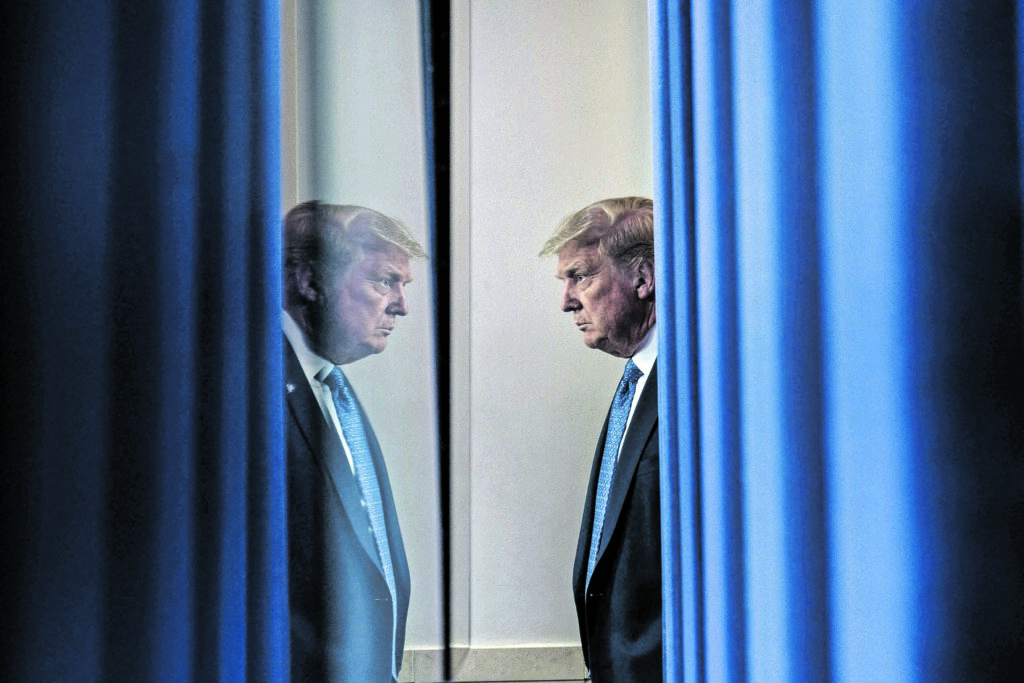
US President Donald Trump. (Photo by Brendan Smialowski / AFP)
President Donald Trump’s executive order withdrawing the United States from the Paris Agreement and cutting all related financial commitments signals a seismic shift in global climate governance. The decision reflects a retreat from collective climate action and undermines critical financing mechanisms and cooperative frameworks necessary for renewable energy development
Africa and other developing regions stand to bear the brunt of this decision, because it threatens to disrupt the already precarious pathways toward a sustainable energy future.
The Paris Agreement emphasised equitable climate action, with developed nations committing to providing $100 billion annually to support mitigation and adaptation in developing countries. Trump’s decision to revoke the US International Climate Finance Plan and freeze associated funds eliminates a significant portion of this financing.
For many African nations, US climate financing has been a lifeline for renewable energy projects. Initiatives such as the Africa Clean Energy Corridor, which aims to enhance regional energy connectivity and scale up renewable projects, rely heavily on international funding. By withdrawing, the US creates a financial vacuum that will be difficult for other donor nations to fill. This reduction in financing is particularly dire given that many African nations face mounting debt crises, leaving little fiscal space for independent renewable energy investments.
Without adequate financial support, large-scale solar, wind and geothermal projects may stall, jeopardising efforts to meet sustainable development goal 7 (affordable and clean energy) and the African Union’s Agenda 2063 objectives.
The US has been a key provider of technological expertise and capacity-building programmes for renewable energy in developing countries. By halting international agreements related to energy policy, as outlined in the executive order, the US isolates itself from collaborative efforts to transfer renewable energy technologies to the Global South.
The lack of US involvement could delay the use of advanced technologies, from next-generation solar panels to battery storage solutions. Furthermore, the absence of technical training programmes risks slowing the development of local expertise, a cornerstone of sustainable energy transitions.
As the US exits the climate finance landscape, cprivate corporations may step in to fill the void. While this might bring short-term investments, it raises concerns about exploitative practices and the prioritisation of foreign interests.
In Africa, for example, large-scale renewable energy projects have sometimes displaced communities or provided energy primarily for industrial operations rather than households. Without stringent international oversight, these inequities may worsen, further alienating vulnerable populations from the benefits of green energy.
The US decision to prioritize “American prosperity” over global cooperation undermines the spirit of multilateralism central to the Paris Agreement. For the Global South, this signals a dangerous precedent where developed nations shirk their responsibilities under the principle of common but differentiated responsibilities and respective capabilities.
While Trump’s withdrawal poses significant problems, it also presents an opportunity for the Global South to enhance regional cooperation. African nations could double down on initiatives such as the African Continental Free Trade Area (AfCFTA) to create economies of scale for renewable energy investments. Collaborative platforms such as the African Union’s Africa Renewable Energy Initiative (AREI) could step up to mobilise local resources and attract alternative funding streams.
Moreover, South-South cooperation could gain momentum, with emerging economies such as India and Brazil playing a more prominent role in supporting renewable energy in Africa.
In the face of reduced public funding, private sector investment will become increasingly critical for renewable energy in the Global South. Although this offers an avenue for resource mobilisation, it also introduces risks, including prioritising profit over equitable access and sustainability.
To mitigate these risks, governments in Africa must implement robust regulatory frameworks that encourage private investment while protecting public interests. Mechanisms such as feed-in tariffs, tax incentives and green bonds can attract investment in a manner that aligns with national development goals.
The US exit from the Paris Agreement and its associated commitments highlights the vulnerability of relying on external actors for climate finance and technology. Decentralised energy systems, such as mini-grids and solar home systems, offer a pathway to expand energy access while minimising reliance on international funding.
But scaling up these solutions requires overcoming barriers such as high upfront costs and limited access to finance for rural communities. International NGOs and local civil society groups can play a pivotal role in bridging these gaps, ensuring that renewable energy transitions are inclusive and equitable.
Africa holds immense potential for renewable energy, with abundant solar, wind, and geothermal resources. By leveraging innovative financing mechanisms such as blended finance and green banks, African nations can attract investment while reducing dependency on volatile international commitments.
Africa and other developing regions can demonstrate that a just and sustainable energy transition is possible, even in the face of global headwinds.
Karabo Mokgonyana is a renewable energy campaigner at Power Shift Africa.